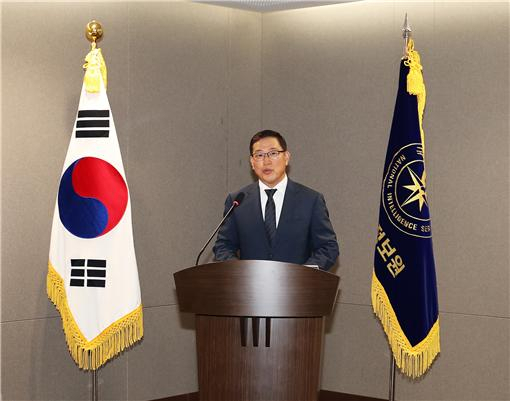 |
National Intelligence Service deputy director Bae Jong-wook speaks to reporters during a press briefing on Tuesday. (NIS) |
South Korea’s election service on Wednesday denied the spy agency verdict that voting systems remain vulnerable to foreign hacking, with at least seven known instances of attacks by North Korean hackers in the last two years.
Responding to The Korea Herald, the National Election Commission said that the vulnerabilities in its systems may have been found in the latest security screenings led by the NIS due to internal information having been shared beforehand.
“The mock cyberattacks would not have been successful without the key pieces of information that we provided to the intelligence agency, such as administrator accounts or the structure of our servers,” said an official at the election service.
“The intelligence agency had an advantage that hackers wouldn’t have under normal circumstances.”
The NIS’ deputy director Bae Jong-wook on Tuesday convened a rare briefing to share the results from the 12-week cybersecurity checks, which found that the election service’s systems could be infiltrated in mock tests conducted by the spy agency.
In the mock tests, the NIS found that the election service’s internal servers, which should be operating without a network connection, could be accessed. A senior-level official has also had his or her email account hacked by North Korea more than once, which resulted in the leak of some confidential data.
The NIS said it was also possible for outside actors to manipulate vote counts, view voter information and print ballot papers, raising concerns over the security of the general election slated for April next year.
While a series of emergency measures were taken at once, longer-term fortification solutions were still being implemented, the NIS added.
Rep. Yoo Sang-bum, the chief spokesperson for the ruling People Power Party, said in a statement Wednesday that the range of security vulnerabilities detected by the NIS posed an “existential threat to democracy, which is built on free and fair elections.”







![[Weekender] Korea's traditional sauce culture gains global recognition](http://res.heraldm.com/phpwas/restmb_idxmake.php?idx=644&simg=/content/image/2024/11/21/20241121050153_0.jpg)